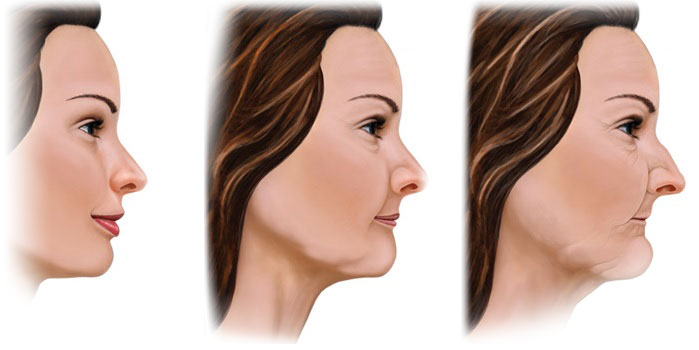Problems with bridges and removable dentures
A dental prosthesis, more commonly known as a denture, is placed directly on the gum and as a result, over the years, the bone of the jaw is absorbed, and the prostheses offer less and less stability, comfort and generate problems when chewing.This bone loss can generate an imbalance that causes abnormal tensions and relaxations on the muscles of the face and neck. This condition explains the gradual appearance of facial and cervical pain.
That is why people without teeth appear to age faster than others. Their lips sink and their chin juts out towards their nose because of the lack of muscle needed to maintain the delicate balance of facial morphology. Partial dentures can also cause damage, involving the same type of bone loss, leaving surrounding teeth without support. The movement of the prosthesis when chewing, eventually affects adjacent teeth and, over time, they can also fall out.
«Dental implants stimulate the bones of the jaw, like natural teeth»
Dental implants avoid bone loss caused by bridges and full or partial removable dentures. Because dental implants are anchored into the jawbone and do not rely on surrounding teeth, they perform naturally and maintain your jaw’s natural bone. When a missing tooth is replaced with a dental implant, the fusion or osseointegration of the implant and bone provides the same stability as a natural tooth. If you’re missing all your teeth, dental implants will stimulate the bone, protect it against atrophy and help preserve your natural facial features.




